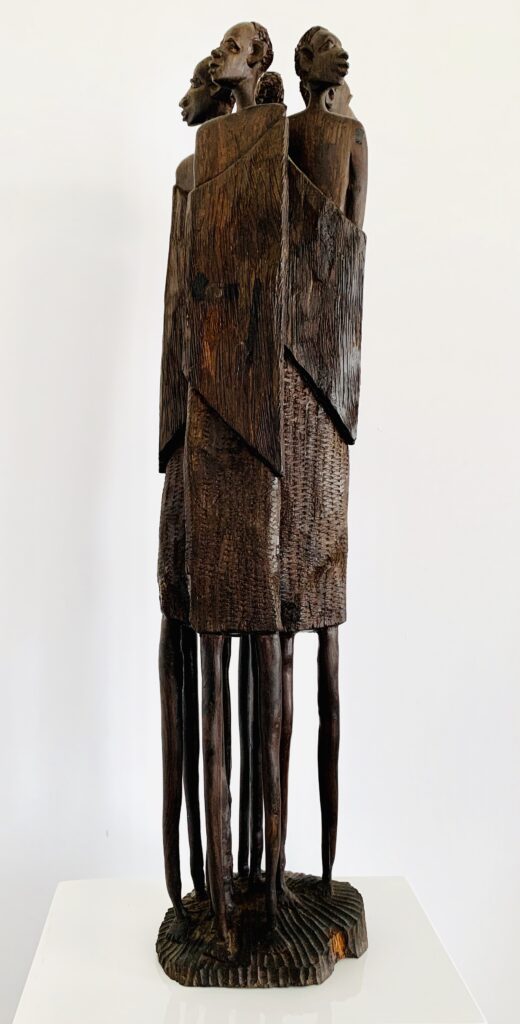Ujamaa: The Tanzanian Ethos of Extended Family and Economic Cooperation

Credit: Munfarid1
Licence: Creative Commons Attribution-Share Alike 4.0 International, via Wikimedia Commons
10 January 2021, 13:56:29
| Giver: | - |
|---|---|
| Receiver: | Formal/Structured unregistered organizations |
| Gift: | Other |
| Approach: | Other |
| Issues: | 10. Reduced Inequalities, 17. Partnerships for the Goals |
| Included in: | ROSCAs |
Ujamaa is a Swahili word meaning familyhood, or extended family. Historically, _Ujamaa _refers to a distinctly African form of socialism promoted by Julius Nyerere (1922-1999), the first president of Tanzania. According to Nyerere’s utopian vision, _Ujamaa _would foster equitable economic development in the newly independent Republic of Tanzania by resuscitating the traditional, pre-colonial African social structure of the extended family — a system based on cooperation and interdependence between individual and community.
Tanzania gained independence in 1961 after decades of colonial rule. When Nyerere became president in 1962, the fledgling country was ethnically factionalized, economically underdeveloped and dependent upon foreign aid. Confronting these challenges, Nyerere embraced an agenda of unity and self-reliance. To transcend divisions among more than 100 distinct ethnic groups, he promoted Swahili as the nation’s official language. Rejecting Western capitalism as an exploitative system imported to Africa by colonial powers, he called for a return to traditional African socialism, which recognized the extended family unit as the foundation of a vibrant, self-reliant economy.
An articulation of Ujamaa _principles, the Arusha Declaration of 1967 outlined Nyerere’s plan to achieve Tanzanian self-reliance through government control of the economy. In addition to nationalizing banks and industrial infrastructure, the declaration introduced _ujamaa vijijini, the Ujamaa villagization program, which aimed to transform rural society by collecting previously dispersed farmers into cooperative agricultural settlements. Ujamaa villages would receive government-supplied seed, fertilizer and modern farming equipment, as well as social welfare services such as education and healthcare.
Launched as a voluntary program, villagization encountered various difficulties of implementation. Over time, the government’s increasingly coercive measures to move people into villages doomed the system to failure. Facing severe economic challenges, in 1985 Nyerere stepped down as president, and _Ujamaa _policies were dissolved.
While _Ujamaa _may have failed as an economic system, the spirit of _Ujamaa _remains central to Tanzanian national identity to this day. _Ujamaa _continues to resonate in Tanzanian popular music and culture, and it is widely credited for transforming Tanzania into one of the ethnically unified countries in Africa.
Globally, the _Ujamaa _ethos — with its emphasis on distributive justice and mutual care — is embedded in Pan-African consciousness.
Contributors: Maha Tazi, Stephen Meyer, Erin Brown
| Source type | Full citation | Link (DOI or URL) |
|---|---|---|
| Publication |
Boesen, Jannik. “Tanzania: from ujamaa to villagization.” In Towards socialism in Tanzania, pp. 125-144. University of Toronto Press, 2019. |
978-0-906-10624-2 |
| Publication |
Delehanty, Sean. “From Modernization to Villagization: The World Bank and Ujamaa”. Diplomatic History. 44 no. 2 (2020): 289–314 |
https://doi.org/10.1093/dh/dhz074 |
| Publication |
Nyerere, Julius K. “Ujamaa: The basis of African socialism.” The Journal of Pan African Studies 1, no. 1 (1987): 4-11. |
https://www.jpanafrican.org/docs/vol1no1/thejournalofpanafricanstudies1987.pdf |
| Book |
Yeager, Rodger. Tanzania: an African experiment. Routledge, 2020. |
978-0-367-28946-1 |
| Publication |
Schneider, Leander. “Freedom and unfreedom in rural development: Julius Nyerere, Ujamaa Vijijini, and villagization.” Canadian Journal of African Studies/La Revue canadienne des études africaines 38, no. 2 (2004): 344-392. |
https://doi.org/10.2307/4107304 |